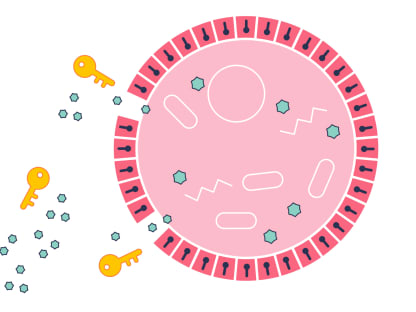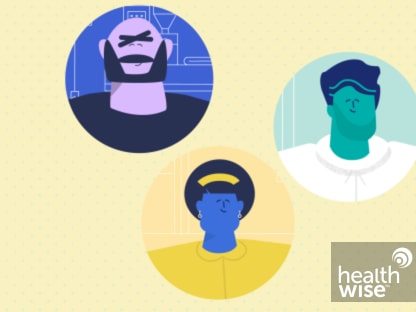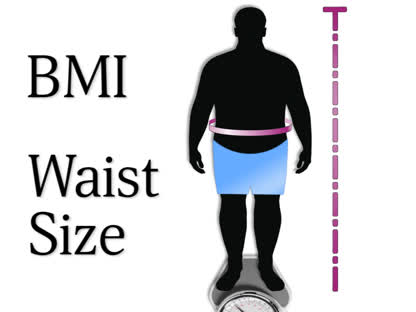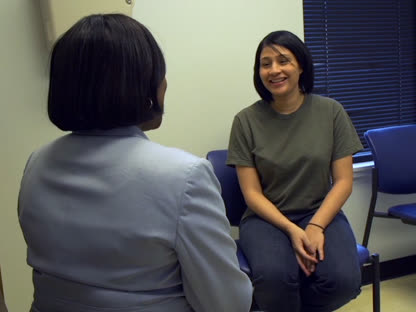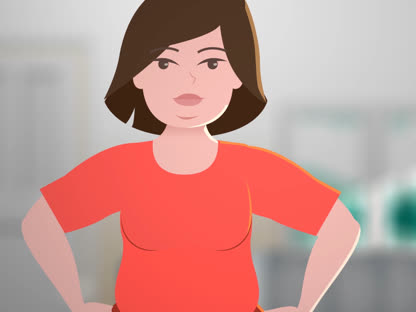Type 2 Diabetes
Condition Basics
What is type 2 diabetes?
Type 2 diabetes is a condition in which you have too much sugar (glucose) in your blood. Glucose is a type of sugar produced in your body when carbohydrates and other foods are digested. It provides energy to cells throughout the body.
Normally, blood sugar levels increase after you eat a meal. When blood sugar rises, cells in the pancreas release insulin, which causes the body to absorb sugar from the blood and lowers the blood sugar level to normal.
When you have type 2 diabetes, sugar stays in the blood rather than entering the body's cells to be used for energy. This results in high blood sugar. It happens when your body can't use insulin the right way.
Over time, high blood sugar can harm many parts of the body, such as your eyes, heart, blood vessels, nerves, and kidneys. It can also increase your risk for other health problems (complications).
What causes it?
When your blood sugar stays too high for too long, it causes type 2 diabetes. It happens when your body can't use insulin the right way. Over time, your body cannot make enough insulin.
What are the symptoms?
Some people who have type 2 diabetes may not have any symptoms early on. You may have the disease for many years before you have symptoms of high blood sugar. Symptoms may include feeling very thirsty or hungry, needing to urinate often, losing weight without trying, and having blurry vision.
How is it diagnosed?
If your doctor thinks that you have type 2 diabetes, they will order blood tests that measure the amount of sugar in your blood. Blood glucose tests and other tests are used. Your doctor will also ask you questions about your medical history and do a physical exam.
How is type 2 diabetes treated?
Treatment for type 2 diabetes will change over time. But the focus will be on keeping blood sugar levels in your target range. Daily habits are important, including eating healthy foods and being active. If you smoke, try to quit. You might have to take medicine every day.
Health Tools
Health Tools help you make wise health decisions or take action to improve your health.
Cause
Type 2 diabetes is a condition in which your blood sugar stays too high for too long.
It happens when:
- Your body can't use insulin the right way. This is called insulin resistance.
- Your pancreas doesn't make enough insulin to make up for the insulin resistance. This is called insulin deficiency.
Insulin is a hormone that helps your body use sugar from your food as energy. It also helps your body store extra sugar in muscle, fat, and liver cells. Without insulin, this sugar can't get into your cells to do its work. It stays in your blood instead. This can cause high blood sugar levels.
Learn more
Watch
What Increases Your Risk
You're more likely to get type 2 diabetes if you:
- Are overweight.
- Get little or no exercise.
- Have type 2 diabetes in your family.
- Eat a diet that isn't healthy. Making healthy food choices is important to avoid diabetes.
Other things that may put you at risk for type 2 diabetes include:
- Age. The risk of getting prediabetes and type 2 diabetes increases with age. But the number of children with type 2 diabetes is increasing. Usually, children who get type 2 diabetes have a family history of the disease, are overweight, and aren't physically active.
- Race and ethnicity. African Americans, Hispanics, Native Americans, Asian Americans, and Pacific Islanders are at higher risk than whites for type 2 diabetes.
- A history of gestational diabetes. Women who have had gestational diabetes are at higher risk for getting type 2 diabetes later in life.
Other health problems can put you at risk for type 2 diabetes. These include:
- Polycystic ovary syndrome (PCOS). PCOS causes a hormone imbalance that interferes with normal ovulation. It can cause problems with a woman's periods and make it harder to get pregnant.
- History of heart disease. The risk factors for developing heart disease also increase the risk for developing type 2 diabetes.
- High blood pressure. Untreated high blood pressure can increase the risk for developing type 2 diabetes.
- Low HDL cholesterol and high triglyceride level. A low level of high-density lipoprotein (HDL) cholesterol and/or a high level of triglycerides can increase the risk for developing type 2 diabetes.
- Conditions associated with insulin resistance. For example, acanthosis nigricans, which is a skin condition.
- Prediabetes. Having prediabetes means that you are at risk for type 2 diabetes.
Learn more
Watch
Prevention
You can take steps to prevent type 2 diabetes. Even small changes can make a difference, and it's never too late to start making healthier choices.
- Stay at a healthy weight. A healthy weight is one that is right for your body type and height and is based on your body mass index (BMI) and the size of your waist (waist circumference). Losing just 7% of your body weight can help reduce your risk for type 2 diabetes.
- Exercise regularly. Do activities that raise your heart rate. Try to do moderate activity at least 2½ hours a week. Or try to do vigorous activity at least 1¼ hours a week. For some people, walking groups or programs are great ways to start exercising and to stay motivated. Try to do muscle-strengthening exercises at least 2 times a week. These exercises include push-ups and weight training. You can also use rubber tubing or stretch bands. You stretch or pull the tubing or band to build muscle strength. Be sure to work the major muscle groups: legs, hips, back, abdomen, chest, shoulders, and arms.
- Eat healthy foods. Eat foods such as whole grains, lean sources of protein, and vegetables. Get enough fiber. Eating fewer calories and being more active can help you lose weight, if you need to.
- Take medicine if you need it. Many people have prediabetes before they have type 2 diabetes. If exercise, eating healthy foods, and being at a healthy weight don't help lower your blood sugar, you may need to take medicine. For people who have prediabetes, the medicine metformin can help prevent type 2 diabetes.
Learn more
Watch
Symptoms
Some people who have type 2 diabetes may not have any symptoms early on. You may have the disease for many years before you have symptoms of high blood sugar.
Symptoms of high blood sugar may include:
- Feeling thirsty all the time.
- Needing to urinate often.
- Feeling hungrier than usual.
- Losing weight for no clear reason.
- Feeling tired all the time.
- Having blurry vision.
- Having infections, cuts, and bruises that heal slowly.
The higher your blood sugar rises, the more likely you are to have symptoms. High blood sugar can also make you dehydrated if you're not drinking enough liquids. This can make you feel dizzy and weak, and it can lead to an emergency called a hyperosmolar state.
You're not likely to get symptoms of low blood sugar unless you take insulin or use certain diabetes medicines that lower blood sugar. Common symptoms of low blood sugar include:
- Sweating.
- Feeling weak.
- Feeling shaky.
- Feeling very hungry.
- Feeling confused.
Learn more
What Happens
You'll keep hearing about how important it is to keep your blood sugar within a target range. That's because over time, high blood sugar can lead to serious problems. It can:
- Harm your eyes, nerves, and kidneys.
- Damage your blood vessels, leading to heart disease and stroke.
- Reduce blood flow and cause nerve damage to parts of your body, especially your feet. This can cause slow healing and pain when you walk.
- Make your immune system weak and less able to fight infections.
When people hear the word "diabetes," they often think of problems like these. But daily care and treatment can help prevent or delay these problems. The goal is to keep your blood sugar in a target range. That's the best way to reduce your chance of having more problems from diabetes.
Learn more
When to Call a Doctor
Call 911 or other emergency services immediately if:
- You have symptoms of hyperosmolar state, such as:
- Blurred vision.
- Trouble staying awake or trouble being woken up.
- Fast, deep breathing.
- Breath that smells fruity.
- Belly pain, not feeling hungry, and vomiting.
- Feeling confused.
Less common in type 2 diabetes is diabetic ketoacidosis (DKA), which has symptoms similar to those of hyperosmolar state. But DKA is still possible and very dangerous.
- You passed out (lost consciousness), or if you suddenly become very sleepy or confused. (You may have very low blood sugar, called hypoglycemia.)
Call a doctor now if:
- You are sick and can't manage your blood sugar. Your doctor may have given you instructions on how to manage your blood sugar when you are sick.
- You have been vomiting or have had diarrhea for more than 6 hours.
- You have a blood sugar level that stays higher than the level the doctor has set for you (for example, 300 mg/dL for two or more readings).
- You have blood sugar that stays lower than the level the doctor has set for you (for example, 70 mg/dL for two or more readings).
- You have symptoms of low blood sugar, such as:
- Sweating.
- Feeling nervous, shaky, and weak.
- Extreme hunger and slight nausea.
- Dizziness and headache.
- Blurred vision.
- Confusion.
Check with your doctor if:
- You often have problems with high or low blood sugar levels.
- You have trouble knowing when your blood sugar is low (hypoglycemia unawareness).
- You have questions or want to know more about diabetes.
Learn more
Exams and Tests
If your doctor thinks that you may have diabetes, you will have blood tests to measure how much sugar is in your blood. A fasting blood sugar (glucose) test, an oral glucose tolerance test, or a hemoglobin A1c test is used. Your doctor will also ask you questions about your medical history and do a physical exam.
Your doctor will use the test results and the American Diabetes Association (ADA) criteria to diagnose type 2 diabetes.
Two tests are often used to confirm the diagnosis of diabetes.
Other possible tests
It may be hard to tell if you have type 2 or type 1 diabetes. If so, your doctor may do a C-peptide test or test for autoantibodies to help diagnose type 1 diabetes or a slowly developing form of type 1 diabetes called latent autoimmune diabetes in adults (LADA). Some rare forms of diabetes are caused by a genetic problem. You may need genetic testing to diagnose them. This includes maturity onset diabetes of the young (MODY). There are many types of MODY, depending on the gene that is affected.
Tests to check your health and screen for problems
Tests you may have include:
- A1c blood test. This shows whether your blood sugar has been staying within your target range.
- Blood pressure test. High blood pressure can damage nerves and blood vessels.
- Cholesterol test. High cholesterol raises the risk for heart attack and stroke.
- Albumin-creatinine ratio test. This checks for protein in the urine, a sign of kidney damage.
- Blood creatinine test/estimated glomerular filtration (eGFR). This shows how well your kidneys are working.
- Complete foot exam. The doctor checks for foot sores and loss of sensation.
- Dental exam and cleaning. The dentist checks for gum disease and tooth decay.
- Complete eye exam. This checks for damage to the back of the eye (diabetic retinopathy).
- Thyroid-stimulating hormone (TSH) blood test. This checks for thyroid disease.
Learn more
Treatment Overview
Treatment for type 2 diabetes will change over time to meet your needs. But the focus of your treatment will usually be to keep your blood sugar levels in your target range. This will help prevent problems such as eye, kidney, heart, blood vessel, and nerve disease.
Some people may need medicines to help their bodies make insulin or decrease insulin resistance. Some medicines slow down how quickly the body absorbs carbohydrates.
Treatment to manage type 2 diabetes includes:
- Making healthy food choices and being active.
- Losing weight, if you need to.
- Getting enough sleep.
- Seeing your doctor regularly.
- Keeping your blood sugar in your target range.
- Taking medicines, if you need them.
- Quitting smoking, if you smoke.
- Managing your blood pressure and cholesterol.
Diabetes management versus cure
There is no known cure for type 2 diabetes. But it can be controlled. And in some cases, it goes into remission.
Avoid products that promise a cure for type 2 diabetes. For example, antioxidant supplements (vitamins E, C, and carotene) don't cure diabetes. The American Diabetes Association does not recommend taking them.
If you hear about something new to help type 2 diabetes, check with your doctor or a diabetes educator to find out if it really works. Your health plan may also provide health information on its website.
Learn more
Self-Care
Making healthy choices is a big part of managing type 2 diabetes. Here are some important steps you can take.
- Eat healthy foods. Follow your meal plan to know how much carbohydrate to eat at each meal and snack. Carbohydrate affects blood sugar more than any other nutrient. It's in breads, cereals, vegetables, fruit, milk, yogurt, and sugary foods like candy and cake.
- Check your blood sugar as often as your doctor recommends. You can use your blood sugar results to adjust your food and activities to stay in your target range.
- Try to do moderate activity for at least 2½ hours a week. One way to do this is to be active 30 minutes a day, at least 5 days a week. For many people, walking is a good choice. You also can try other activities, like swimming or riding a bike.
- Limit alcohol. The American Diabetes Association recommends that women with diabetes have no more than 1 drink a day and men with diabetes have no more than 2 drinks a day.
- If you smoke, try to quit. If you can't quit, cut back as much as you can. If you need help quitting, talk to your doctor about stop-smoking programs and medicines. These can increase your chances of quitting for good.
- Get support. You may be overwhelmed by how much you need to learn and change. Talk with your family and friends about your feelings, and ask for help if you need it.
- Have hemoglobin A1c tests. This blood test shows how steady your blood sugar levels have been over time. Your doctor may recommend that you get this test every 3 to 6 months.
- Take steps to prevent problems that diabetes can cause. Work with your doctor to manage your blood pressure and cholesterol, and talk to your doctor about foot exams and other tests. Tests to do every year may include:
- A complete eye exam by an ophthalmologist or optometrist. High blood sugar levels from diabetes can damage your eyes. This test can find problems early, such as diabetic retinopathy.
- A foot exam to check for signs of problems. Nerve damage in your feet makes it hard to feel an injury or infection.
- Blood and urine tests. These tests may be done regularly to check for kidney problems.
- Take your diabetes medicine. If you take diabetes medicine, take it exactly as prescribed. Do not stop or change your medicine without talking to your doctor first.
- Have a sick-day plan. Work with your doctor to make a plan for what to do when you are sick. Being sick can affect your blood sugar.
Learn more
Watch
-
Diabetes: A1c Test and Making a Plan
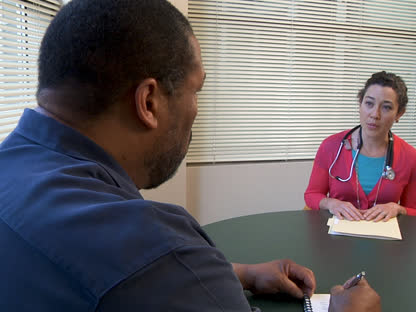
-
Diabetes: Carbohydrates and Your Blood Sugar
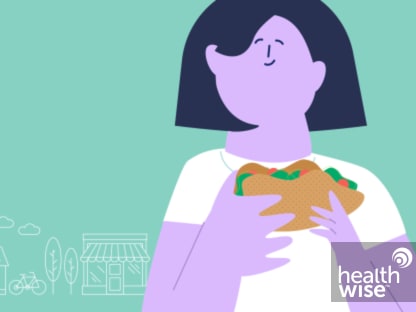
-
Diabetes: Counting Carbohydrates

-
Diabetes: Daily Foot Check
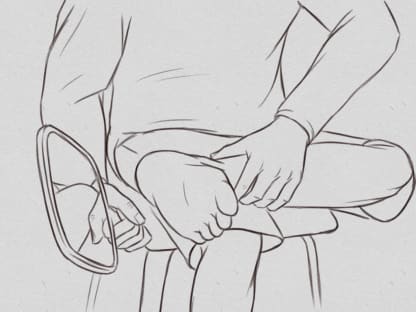
-
Diabetes: How Exercise Can Help
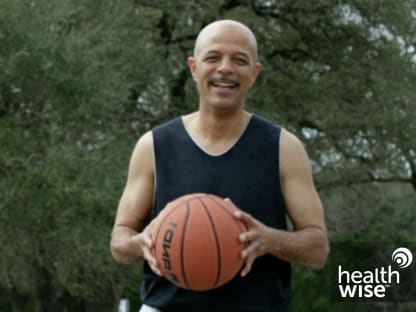
-
Diabetes: How Testing Helps You Stay In Your Range
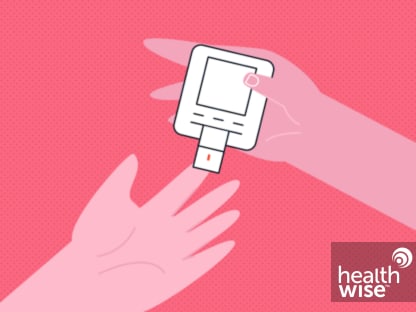
-
Diabetes: How to Build Your Plate
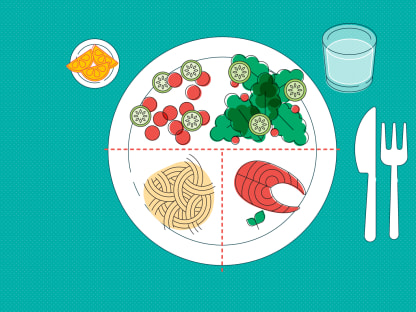
-
Diabetes: Taking Care of Your Heart

-
Diabetes: Testing Your Blood Sugar
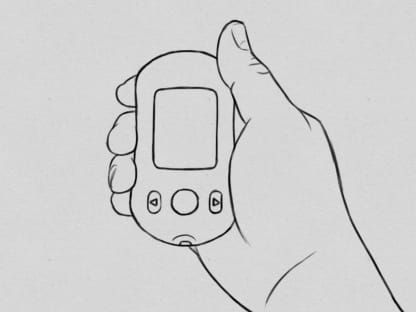
-
How Others Manage Diabetes

Medicines
Some people with type 2 diabetes need medicines to help their bodies make insulin, decrease insulin resistance, or slow down how quickly their bodies absorb carbohydrates.
- You may take no medicine, one medicine, or a few medicines. Some people need to take medicine for a short time. Others always need to take medicine.
- How much medicine you need depends on how well you can keep your blood sugar within your target range. You may need more medicine over time. This can happen even if you have good control of your blood sugar.
- If you are having trouble controlling your blood sugar with pills, your doctor may suggest other medicines, such as insulin or a noninsulin medicine taken as shots.
Medicine choices
Medicines that may be prescribed include:
-
Noninsulin medicines.
- Ones that you take as pills include metformin, canagliflozin, glipizide, linagliptin, and pioglitazone.
- Ones that you take as shots include dulaglutide, exenatide, and liraglutide.
- Insulin. It lets sugar (glucose) in the blood enter cells, where it is used for energy. Without insulin, the blood sugar level gets too high. Insulin can be taken as a shot (injection), as a nasal spray, or through an insulin pump. Most people who take it use a combination of short-acting and long-acting insulin. This helps keep blood sugar within the target range.
Learn more
Watch
Surgery
Experts recommend weight-loss surgery (also called bariatric surgery) for people who have type 2 diabetes and whose:
- Body mass index (BMI) is 40 or more, even if blood sugar is controlled with medicine or healthy habits.
- BMI is 35 or more if blood sugar isn't controlled with medicine or healthy habits.
Some doctors may suggest surgery for people whose BMI is 30 or more if blood sugar isn't controlled with medicine or healthy habits.
If you are Asian, your doctor may recommend surgery with a lower BMI. Studies have shown that the risks from being overweight start at a lower BMI in people of Asian background.
Learn more
Watch
Related Information
Credits
Current as of: July 7, 2025
Author: Ignite Healthwise, LLC Staff
Clinical Review Board
All Ignite Healthwise, LLC education is reviewed by a team that includes physicians, nurses, advanced practitioners, registered dieticians, and other healthcare professionals.
Current as of: July 7, 2025
Author: Ignite Healthwise, LLC Staff
Clinical Review Board
All Ignite Healthwise, LLC education is reviewed by a team that includes physicians, nurses, advanced practitioners, registered dieticians, and other healthcare professionals.








